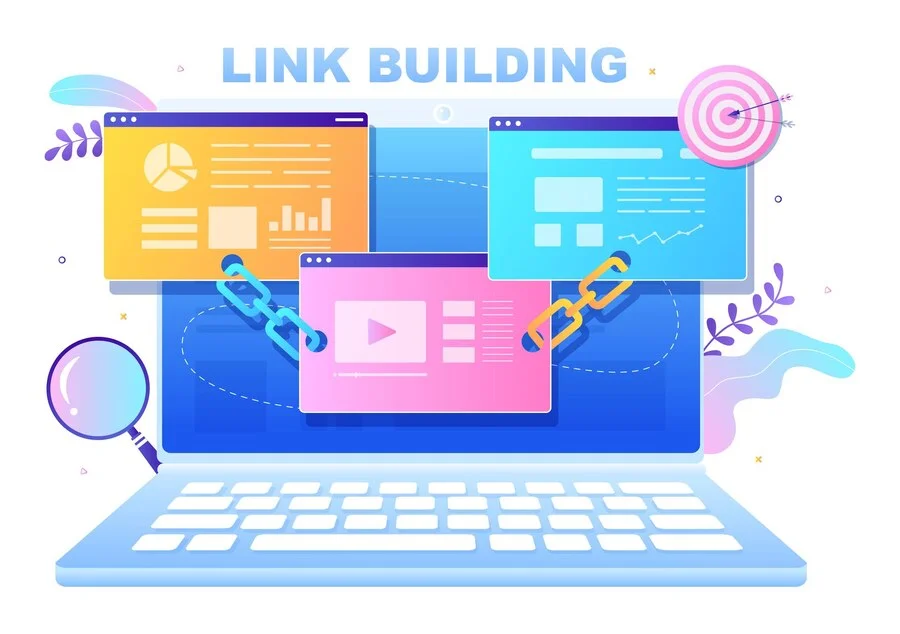SEO
Boosting Website Inclusivity: Best Practices and Tools

Inclusivity is no longer just a buzzword—it’s a crucial part of building a website that works for everyone. From users with disabilities to those in underserved communities, website inclusivity ensures that your site is welcoming, accessible, and functional for every visitor, no matter their abilities or circumstances. Plus, an inclusive website isn’t just the right thing to do; it can also help you reach a larger audience, improve SEO, and protect your business from legal risks.
In this article, we’ll cover the best practices for creating an inclusive website and the tools you can use to help you get there. Whether you’re starting from scratch or looking to improve an existing site, these tips will help you create a digital space that everyone can enjoy.
Why Website Inclusivity Matters
Creating an inclusive website means designing with everyone in mind. This includes users with disabilities, those with limited access to technology, or people in different regions of the world who may have slower internet speeds or older devices. When your website is inclusive, it becomes easier to use for a wide range of people, helping you reach a broader audience.
Inclusivity also plays a significant role in SEO. Search engines favor websites that are user-friendly and accessible. When your site is easy to navigate and optimized for everyone, you’ll likely see improvements in search rankings, user engagement, and overall performance.
Finally, there’s the legal aspect to consider. In many countries, businesses are required to make their websites accessible under laws like the Americans with Disabilities Act (ADA). Failing to meet these standards can result in lawsuits and fines, making it essential to build inclusivity into your website from the start.
Best Practices for Boosting Website Inclusivity
Achieving website inclusivity may seem like a tall order, but by following a few best practices, you can make your site more welcoming to all users. Here are some key areas to focus on.
1. Design for Accessibility
Accessibility should be a top priority when aiming for an inclusive website. Make sure your site is easy to use for people with disabilities, including those who rely on screen readers, keyboard navigation, or alternative input devices. Follow WCAG guidelines to ensure your website meets basic accessibility standards, including:
- Providing alt text for images so screen readers can describe them.
- Ensuring proper color contrast between text and background for readability.
- Making sure all interactive elements are accessible via keyboard.
2. Simplify Navigation
An inclusive website should be easy to navigate for all users. Keep your menus simple and logical, and make sure that navigation elements, like buttons and links, are large enough to be easily clicked. Consider including a skip-to-content link for users relying on keyboard navigation, allowing them to jump straight to the main content without getting stuck in menus.
Clear and intuitive navigation improves the experience for everyone, including users with disabilities, older individuals, and those using mobile devices or with slow internet connections.
3. Provide Text Alternatives
For any non-text elements like images, audio, or video, always provide a text alternative. Alt text for images is crucial for users who rely on screen readers, while captions and transcripts make audio and video content accessible to people who are deaf or hard of hearing.
These alternatives also have the added benefit of improving your SEO. Search engines use alt text and transcripts to understand the content of images and media, so providing clear descriptions can boost your rankings.
4. Optimize for Mobile
A significant portion of web traffic now comes from mobile devices, so ensuring your site is mobile-friendly is essential for inclusivity. Make sure your website is responsive, meaning it adjusts to different screen sizes and devices, and that buttons and links are large enough to be tapped easily.
A mobile-optimized website improves accessibility for users who rely on touchscreens or have limited dexterity, and it ensures a better experience for users on the go.
5. Consider Language and Localization
Inclusivity goes beyond accessibility—language and cultural differences also play a role. If you have a global audience, consider offering multiple language options on your site. Make sure your content is written clearly and avoid jargon that might confuse non-native speakers. Also, consider cultural nuances that may impact how users interact with your site.
6. Use Website Accessibility Checkers
Website Accessibility Checkers are essential tools that automatically evaluate your website’s accessibility, identifying potential barriers for users with disabilities. These tools analyze key aspects of your site, such as keyboard navigation, alt text for images, and color contrast, and generate reports on issues that need fixing.
Some popular accessibility checkers include:
- WAVE: A free tool that highlights accessibility issues and provides visual feedback on what needs improvement.
- Google Lighthouse: Offers an in-browser audit that evaluates your website’s performance, SEO, and accessibility, giving you actionable steps to improve your site.
- axe: A powerful tool used by developers to catch and resolve accessibility issues during development.
This level of inclusivity can make your site more welcoming to international visitors, improving your global reach and enhancing the user experience for diverse audiences.
Step-by-Step Guide to Boosting Website Inclusivity
Ready to get started? Here’s a simple guide to help you make your website more inclusive:
- Audit Your Site’s Accessibility: Start by running an audit using tools like WAVE or Google Lighthouse. These tools will highlight areas where your website falls short, such as missing alt text or poor keyboard navigation.
- Fix Accessibility Issues: Prioritize fixing the most critical issues first—like adding alt text, improving color contrast, and ensuring that forms and buttons are keyboard-friendly.
- Install an Accessibility Plugin: Use a plugin like UserWay or AccessiBe to add immediate accessibility features like text resizing, color contrast adjustments, and screen readers.
- Test Mobile Responsiveness: Check that your site works well on mobile devices. Ensure that all content is easily accessible and that interactive elements are large enough to tap.
- Add Language Options: If your audience is global, consider offering multilingual support with plugins like Weglot. This will make your site more inclusive to non-native speakers.
- Get Feedback: Finally, ask real users—especially those with disabilities—to test your site. Their feedback can provide valuable insights that automated tools might miss, helping you fine-tune your site for maximum inclusivity.
Conclusion
Boosting website inclusivity isn’t just about meeting legal requirements—it’s about creating a welcoming, user-friendly experience for everyone. By following best practices like optimizing for accessibility, simplifying navigation, and providing text alternatives, you’ll make your website more inclusive for all users, regardless of their abilities or backgrounds.
With the help of tools like WAVE, Google Lighthouse, and UserWay, you can quickly identify and fix any gaps in your website’s inclusivity. Remember, creating an inclusive site benefits everyone—not just users with disabilities—so it’s worth investing the time and resources to get it right.
SEO
Understanding Backlinks: A Comprehensive Guide for Enhancing Your SEO

Backlinks are fundamental to SEO success, serving as endorsements from one website to another. Recognized by search engines as votes of confidence, quality backlinks can significantly improve a site’s visibility and ranking.
What Are Backlinks?
Backlinks, also known as inbound or incoming links, occur when one website links to another. These are crucial for SEO because they signal to search engines that others vouch for your content. This endorsement can boost your site’s credibility and, ultimately, its rank in search engine results pages (SERPs).
The Importance of Quality Backlinks
Not all backlinks are created equal. The best backlinks have several key characteristics:
- Authority: Links from reputable, high-authority sites provide more value.
- Relevance: Links from sites within the same industry or niche are more beneficial.
- Dofollow Status: Dofollow links allow search engines to follow them and pass on link equity, unlike nofollow links, which do not pass on link equity.
- Anchor Text: The clickable text part of a hyperlink. Ideally, anchor text should be relevant to the linked page.
- Placement: Links placed within the main body of a webpage are generally more powerful than those in the footer or sidebar.
How to Acquire Quality Backlinks
Are you looking to Backlinks kaufen? Then you have come to the right place.
- Create Compelling Content: Produce high-quality content that addresses the needs and interests of your target audience. This includes in-depth articles, infographics, videos, and more that provide value and encourage other sites to link back to your content naturally.
- Guest Blogging: Writing articles for other relevant blogs can provide backlinks and is an effective way to reach new audiences.
- Broken Link Building: This involves finding broken links on other websites and suggesting your content as a replacement.
- Skyscraper Technique: Identify popular content with lots of backlinks, create something better, and then reach out to those who linked to the original piece.
- Engage in Community Discussions: Participate in forums and comment sections where you can provide valuable insights and link back to relevant content on your site.
Avoiding Backlink Pitfalls
- Buying Backlinks: This can lead to severe penalties from Google.
- Irrelevant Links: Links from unrelated sites may not contribute value and can sometimes harm your site’s standing.
- Over-Optimization: Excessive use of keyword-rich anchor text can look spammy and lead to penalties.
Tools and Strategies for Effective Backlink Management
- Use Tools like Ahrefs or Google Search Console: These tools can help you track your backlinks and the quality of links.
- Regular Audits: Periodically check your link profile for any low-quality or spammy links that could harm your ranking.
- Focus on Organic Growth: Encourage natural link development through networking and collaborative opportunities with authoritative sites in your industry.
Conclusion
Backlinks remain a cornerstone of successful SEO strategies. By focusing on quality over quantity, engaging in ethical link-building practices, and continuously creating valuable content, websites can improve their SEO performance significantly. Remember, a good backlink profile helps not only in enhancing your SEO but also in establishing your site as a credible and authoritative source in your industry.
SEO
Conquering the Kenyan Web: Best Practices for SEO in Nairobi

Nairobi’s digital landscape is a bustling marketplace where businesses of all sizes vie for online visibility. Search Engine Optimization in Nairobi (SEO) is the key to unlocking organic traffic and attracting potential customers through search engines like Google. However, a one-size-fits-all SEO strategy won’t suffice in the unique Kenyan market. This article explores best practices specifically tailored to help Nairobi businesses dominate local search results.
Keyword Research with a Kenyan Twist
Keyword research is the cornerstone of any successful SEO campaign. Here’s how a digital marketing agency in Nairobi can tailor its SEO services for the Nairobi market:
- Localize Your Keywords: Go beyond generic keywords and identify long-tail keywords with local relevance. Kenyans might search for “best restaurants Nairobi CBD” instead of just “best restaurants.”
- Consider Swahili Keywords: Swahili is a widely spoken language in Kenya. Incorporate Swahili keywords into your content strategy to reach a broader audience (e.g., “hoteli za kifahari Nairobi” for luxury hotels).
- Utilize Local Search Tools: Leverage Google Keyword Planner and local SEO tools to identify popular search terms with high search volume and low competition specific to Nairobi.
On-Page Optimization: Optimizing Your Website for Local Success
Once you have your keywords, optimize your website to improve search engine ranking and user experience:
- Target Keywords in Strategic Locations: Integrate relevant keywords naturally into your website’s title tags, Meta descriptions, headers (H1, H2, etc.), and throughout the content.
- Location, Location, Location: Optimize your Google My Business listing with accurate business information, high-quality photos, and positive customer reviews. Encourage satisfied clients to leave reviews to boost local SEO.
- Mobile-First Approach: A significant portion of Nairobi’s online population accesses the internet via smartphones. Ensure your website offers a seamless user experience for mobile users with fast loading speed and responsive design.
- Content is King (and Queen): Create high-quality, informative content that resonates with your local target audience. Address their specific needs and challenges, showcase local success stories, and highlight your expertise in the Kenyan market.
- Optimize Images with Local Context: Include relevant keywords in image alt tags and use high-quality visuals that reflect the Kenyan culture and local landscape.
Building Backlinks: Earning Trust in the Kenyan Online Sphere
Backlinks from reputable websites act as votes of confidence for your website in the eyes of search engines. Here’s how to build trust and secure high-quality backlinks in Nairobi:
- Collaborate with Local Businesses: Partner with complementary businesses in Nairobi for guest blogging opportunities or co-creating informative content that benefits both audiences.
- Target Local Online Publications: Reach out to Kenyan online publications, blogs, and directories relevant to your industry and explore guest blogging opportunities to earn backlinks from high-authority websites.
- Engage on Social Media: Actively participate in relevant online communities and social media groups in Nairobi. Share valuable content, engage in discussions, and build relationships with influencers who might be willing to link back to your website.
- Focus on Quality over Quantity: Prioritize earning backlinks from high-quality, relevant websites in the Kenyan online space. Avoid low-quality link farms and schemes that can negatively impact your SEO efforts.
Technical SEO: Ensuring a Smooth User Experience for All
Technical SEO ensures your website functions flawlessly and is easily crawled by search engines:
- Website Speed Optimization: Website loading speed is a crucial ranking factor. Use website speed testing tools and implement techniques to improve website speed for a smooth user experience.
- Structured Data Implementation: Utilize structured data markup to provide search engines with additional information about your website content, potentially improving search result snippets and attracting more clicks.
- Mobile Responsiveness: Ensure your website adapts and displays correctly across all devices, especially smartphones, to cater to the mobile-first user base in Nairobi.
- Regular Website Audits: Conduct regular technical SEO audits to identify any crawl errors, broken links, or technical issues that might hinder your website’s ranking.
Staying Ahead of the Curve: Embracing Local Trends and Google Updates
The SEO landscape is constantly evolving. Here’s how to stay competitive in the Nairobi market:
- Monitor Google Algorithm Updates: Stay informed about the latest Google algorithm updates and adjust your SEO strategy accordingly. Focus on white-hat SEO techniques and user experience to ensure long-term success.
- Embrace Voice Search Optimization: Voice search is becoming increasingly popular. Optimize your website content with natural language and long-tail keywords to improve your ranking for voice search queries.
- Focus on Local Events and Trends: Stay updated on local events, trends, and news.
SEO
How to Find Affordable SEO Services Without Compromising Quality

Finding cost-effective seo solutions is an important step for small businesses that want to improve their search engine optimization strategies. In this blog post, we will discuss five tips for finding quality SEO services without breaking the bank.
Look for agencies with client reviews and testimonials. Also, ask for writing samples and analyze the content they’ve created for other websites.
1. Do Your Research
Aside from assessing the SEO agency’s portfolio, you must also research the companies that they have worked with in the past. By doing so, you will be able to tell how familiar they are with your industry, niche, and target market. This will help them formulate strategies that are suited to your business’s specific needs.
Additionally, make sure to look for an affordable SEO provider that advocates transparent pricing and clear communication.
This will ensure that you are getting the best value for your money. Avoid agencies that offer extravagant promises like guaranteeing top positions on Google, as they are most likely relying on black-hat techniques that could hurt your website’s rankings. They may also use spammy tactics that will earn you a Google penalty in the long run.
2. Ask About Discounts
If you do a quick search online for “affordable SEO services,” you’ll find countless providers offering to get your site on the first page of Google for a low one-time fee. However, most of these cheap SEO services are based on unrealistic promises.
Rather than looking for the cheapest rates, look for value-added services or an agency that offers discounts for repeat business and referrals. Additionally, be wary of agencies or freelancers that require long-term contracts.
These types of contracts can be costly in the long run as they can lead to stagnant or negative SEO results over time. Instead, consider working with an SEO company or freelancer that offers performance-based pricing based on meeting concrete key performance indicators like keyword rankings and organic traffic growth.
3. Look for a Reputable Provider
When you’re searching for affordable SEO services, it’s essential to find a provider that you can trust. Look for an agency that has experience working with small businesses and understands the challenges and opportunities they face. Also, ask for testimonials and recommendations from previous clients.
Avoid cheap SEO services that claim they can guarantee a top Google ranking in a short amount of time. These companies often resort to black hat SEO tactics that can damage your website’s rankings in the long run.
It’s also important to look for a reputable SEO expert who is transparent about their process and strategies. This will help you make an informed decision and get the most bang for your buck. In addition, avoid agencies that require a long-term contract.
4. Get Quotes
The cost of SEO services varies, so it’s important to get quotes from multiple providers. This will help you determine which ones are within your budget while also ensuring that the services you’re getting are quality-oriented and offer a return on investment.
It’s also important to consider the company’s experience. Look for companies with a proven track record of success and an extensive portfolio of clients. Also, ask about their client retention rate and whether their specialists are experienced in a variety of SEO tasks.
Lastly, look for affordable SEO services that prioritize small and startup businesses. JetRank offers affordable pricing while also providing high-quality results. Their team is dedicated to helping their clients succeed online and they’re always willing to go the extra mile to ensure a positive customer experience.
5. Stick to Your Budget
When evaluating potential affordable SEO service providers, ask about their past work and specific examples in your industry. A reputable agency will understand the nuances of your business and its goals. They will also have an in-depth understanding of your industry and competitors.
Cheaper services may use generic tactics that will never achieve real results for your business. Worse yet, they may rely on black hat techniques that could leave you facing severe penalties down the road. You should also look for a company that provides transparent reporting and does not hide behind custom dashboards. If you are unsure about a company’s reporting, ask them to provide you with a sample of their Google Analytics report. This will give you a clear picture of their performance and effectiveness.

 TECHNOLOGY4 months ago
TECHNOLOGY4 months agoBlog Arcy Art: Where Architecture Meets Art

 ENTERTAINMENT2 weeks ago
ENTERTAINMENT2 weeks agoExploring the Kristen Archives: A Treasure Trove of Erotica and More

 LIFESTYLE4 months ago
LIFESTYLE4 months agoThe Disciplinary Wives Club: Spanking for Love, Not Punishment

 LIFESTYLE2 weeks ago
LIFESTYLE2 weeks agoWho Is Sandra Orlow?

 GENERAL3 days ago
GENERAL3 days ago5 Factors That Affect Tattoo Removal Success

 ENTERTAINMENT8 months ago
ENTERTAINMENT8 months agoYuppow: Your Free Source for Movies and TV Shows

 ENTERTAINMENT1 week ago
ENTERTAINMENT1 week agoKiss KH: The Streaming Platform Redefining Digital Engagement and Cultural Currents

 HOME IMPROVEMENT5 days ago
HOME IMPROVEMENT5 days agoGet Your Grout to Gleam With These Easy-To-Follow Tips












